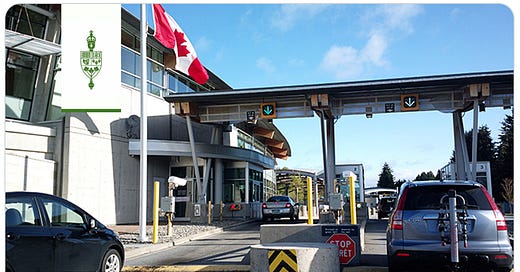Government's new ‘countering foreign interference’ bill could threaten freedom of the press and allow surveillance of Canadians’ international engagement
In one day last week, Bill C-70, the Countering Foreign Interference Act, underwent second reading in the House of Commons and is now in Committee to hear witnesses in a public consultation, starting tomorrow, but the Canadian Civil Liberties Association (CCLA) says that doesn’t give them and other civil society groups enough time.
In a letter to the Standing Committee on Public Safety and National Security, the CCLA argue that while it’s important for the country to address “any threat to Canada’s democracy,” the bill is a complex one with “vague and broad language that raises democratic accountability issues.” It also “raises concerns about the potential use of the Registry as a tool that could allow the government to monitor not only foreign influence specifically, but also more generally, the international engagement of… foreign state-owned or funded broadcasters, academic institutions and charities, as well as international organizations…”
“These considerations potentially involve freedom of the press and privacy issues,” the letter states.
The CCLA is calling on the Standing Committee to conduct “meaningful public consultations” on the proposed legislation.
The letter reads:
Bill C-70 currently states that any person who enters into an “arrangement” with a “foreign principal” under which they undertake to carry out activities listed in relation to a “political or governmental process” in Canada must, within 14 days, provide the Foreign Influence Transparency Commissioner with a list of information to be specified in the regulation.
As the bill currently stands, the CCLA argues that not only is the term “foreign principal” too broad, potentially capturing broadcasters, charities and even academic institutions that are foreign state owned or funded, but the terms “arrangement” or “in association with” could capture “individuals engaging with the public while being or after having been in contact with foreign state-owned or funded entities, including broadcasters, charities, or academic institutions.”
The bill also lays out very serious penalties in the case of non-compliance, including fines of up to $5 million and up to five years in prison.
As part of the new law, a Foreign Influence Registry will be created, but the CCLA points out that it’s not possible to know how this Registry would be used by the State and “what impact it could have on democracy, freedom of the press and privacy rights.”
Here is the key point (italics mine):
“The heavy reliance on future regulations is thus not only problematic from a democratic accountability standpoint. In view of the broad definitions discussed above, there is also concern that the Registry could be used to surveil international engagement…”
The CCLA would like to more meaningfully engage with the consultation process and is asking for more time to do so.
As an aside, the Quaking Swamp Journal has reported on many of the laws the governing Liberals have introduced that impinge on Canadians’ fundamental rights and freedoms, including freedom of the press and privacy. One that I touched on in a recent piece, the Online Harms Act, will allow government appointees outside the court system to censor expression, including journalism, and criminalize political activism by imposing draconian penalties.
There are numerous other laws passed — with very little public engagement, or even public knowledge.
These laws are now being introduced at such a pace, that even organizations that are dedicated to keeping an eye on them, are having difficulty keeping up. I’m deeply concerned that with every new law passed — each one purporting to protect Canadians from some aspect of what’s being characterized as an ever-increasing domestic or foreign security threat level — we are not protecting democracy, as these laws purport, but further eroding it. As each bill is dutifully considered in detail by groups like the CCLA, my question is, who is assessing the bigger picture? What will life be like for anyone who wants to engage politically in ways that might be critical of government policy or official narratives when all of these laws exist together? How will these laws be used by future governments? Who will they be used against? It is my view, that the rights and freedoms that we have taken for granted in Canada are in serious peril.





I agree, these rights and freedoms are being sabotaged all over the west, and it seems like Trudeau - or rather the global and domestic power centres whose sock puppet he is - wants to be at the forefront of the process. I hope the CCLA will do what you allude to and try to "assess the big picture"; i.e. look at *all* the legislation being quietly enacted to subvert democracy and write an extensive report about it.